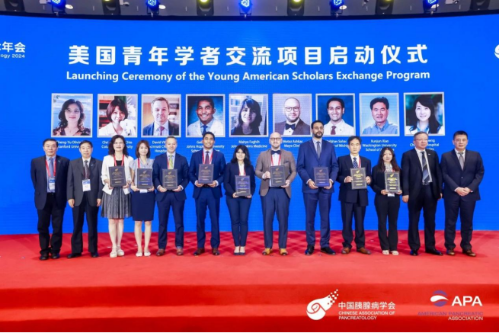CAP holds 2024 annual meeting to promote exchanges between young scientists
Sponsored by the Chinese Association of Pancreatology (CAP) and co-organized by the American Pancreatic Association (APA), the Academic Meeting of Chinese Association of Pancreatology 2024 was held in Hangzhou, east China’s Zhejiang Province from June 21 to 23, 2024.
The meeting was the first international event held since the establishment of the CAP, aiming to build an international and interdisciplinary platform for experts and scholars in this regard both at home and abroad to exchange ideas and advance scientific development.
The annual meeting had nearly 10 English thematic sessions, attracting prestigious experts from the United States (U.S.), Germany, Hungary, Japan and India to share views face-to-face with their Chinese peers on frontier topics and cutting-edge advancement in the field of pancreas.
This year’s event witnessed the inauguration of the Young American Scholars Exchange Program, sponsoring outstanding young scholars in the field of pancreatic disease from the US to visit China.
Recommended by the APA, 9 young American scholars from top medical institutions including Stanford University, Columbia University, Cincinnati Children's Hospital, Johns Hopkins School of Medicine, and Mayo Clinic came to participate in 2024 CAP annual meeting.
This year’s event also launched the International Exchange Program for Chinese Junior Scholars, which annually supports a group of outstanding Chinese young scholars to participate in international academic activities organized by renowned international institutions including the APA, the Japan Pancreas Society (JPS), and the European Pancreatic Club (EPC).
The first batch of Chinese young scholars who got the sponsorship will be invited to the 55th annual meeting of the APA held in Hyatt Regency at Maui, Hawaii on December 9-12, 2024.
At the young scientists’ exchange session, 9 American young scholars shared views and experiences with their Chinese peers in pancreatic disease diagnosis and treatment technologies development including gene therapy, islet autotransplantation, and endoscopic intervention. These exchanges helped build the mutual understanding and trust between the young scientists of the two countries, laying the foundation for further cooperation in the future.

Tag: Department of International Affairs of CAST, Academic Exchanges, Young Scientists
